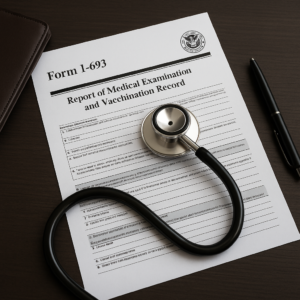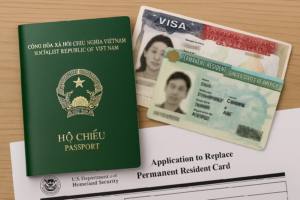 What Documents Are Needed in a Form I-130 Petition for a Foreign Spouse? A USCIS Form I-130 is a Petition for Alien Relative. A U.S. citizen or Lawful Permanent Resident (green card holder) is eligible to petition his or her foreign spouse to immigrate to the United States.
What Documents Are Needed in a Form I-130 Petition for a Foreign Spouse? A USCIS Form I-130 is a Petition for Alien Relative. A U.S. citizen or Lawful Permanent Resident (green card holder) is eligible to petition his or her foreign spouse to immigrate to the United States.
Along with a Form I-130 and accompanying Form I-130A, supporting documentation is also submitted when the petition is filed with the United States Citizenship and Immigration Services (USCIS). These include the following:
- Copy of the U.S. Citizens passport or if the petitioner is a green card holder, a copy of their green card and foreign passport.
- U.S. size passport photos of the petitioner and beneficiary.
- Copy of the foreign spouse’s passport.
- Copy of the foreign spouses birth certificate.
- Marriage certificate between the petitioner and foreign spouse.
- Copies of previous marriage terminations from the petitioner or beneficiary (divorce or annulment decrees or death certificates).
- Copies of birth certificates of children born between the petitioner and beneficiary.
- Family photos of the petitioner and beneficiary taken over the course of their relationship.
All documentation submitted to USCIS must be translated into English if the original document is in a foreign language. For more information or questions regarding the required documentation in petitioning a foreign spouse, contact an immigration lawyer for assistance.








